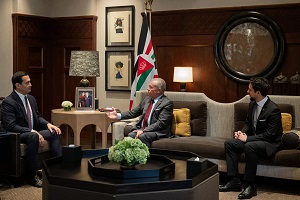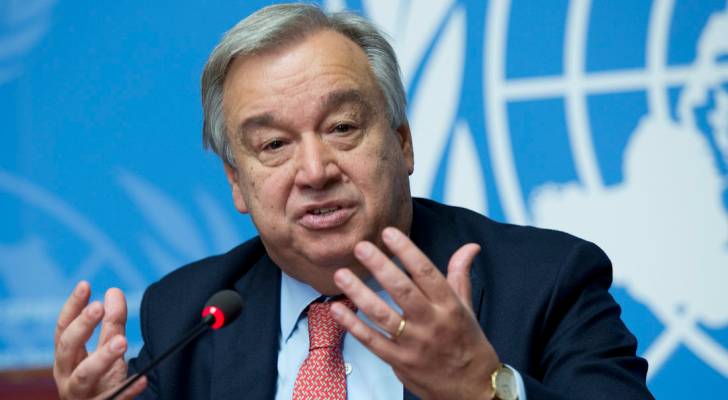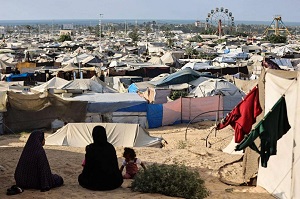Jordan, Syria take another ‘tangible’ step to address shared water woes
The Jordan Times
AMMAN — A joint Jordanian-Syrian technical committee on integrated water resources management has launched a shared water platform, marking another tangible step the two neighbours have taken to resolve their longstanding water issues.
The platform, according to Water Ministry spokesman Omar Salameh, aims to boost cooperation over the Yarmouk River basin and enable data-driven responses to growing climate pressures.
Jordan, under Syria’s toppled regime of Bashar Al Assad, has suffered from a number of decades-long disputes with the northern neighbour, including primarily water shares of the Yarmouk River.
With the new government taking office in Damascus, several Syrian high-ranking officials have visited Jordan, and the two countries have launched a number of initiatives to boost cooperation, mainly in water.
The platform, announced Sunday during a visit by a Syrian delegation to the Ministry of Water and Irrigation as part of a five-day technical workshop, will allow the two countries to “exchange information and studies related to climate change in the Yarmouk River basin and develop joint solutions,” Salameh told The Jordan Times over the phone on Tuesday.
He added that the platform would “share expertise and knowledge on water resources for the benefit of both countries and keep users informed about the latest global developments.”
According to Salameh, the initiative aims to promote investment opportunities in the water sector and support evidence-based research by providing a common data source and coordination tool.
Also on Tuesday, Omar Shoshan, chairman of the Jordan Environmental Union, welcomed the move but urged stronger transboundary cooperation.
He described the Yarmouk basin as “a vital lifeline for Jordan,” and said that the Wihdeh Dam “serves as a cornerstone of the kingdom’s water-security strategy.”
Beyond infrastructure, he called the basin “a rare example of cross-border cooperation on climate action between Jordan and Syria.”
Shoshan warned that climate change is already intensifying pressure on the basin, adding that the weak rainfall in 2024 and continued unsustainable water use have “further undermined fair allocations.”
Shoshan said that climate projections, including declining rainfall, rising temperatures and higher evaporation rates, will increase stress on the basin’s fragile water resources and ecosystems.
“The future of water and food security in Jordan depends on building fair and sustainable agreements with our neighbours,” Shoshan said.
“Strengthening resilience across borders is no longer an option but a necessity.”
He commended recent steps by the government to engage with Damascus over Jordan’s share of Yarmouk waters as “an encouraging signal for both resource management and regional cooperation.”
Jordan and Syria have long negotiated shared use of the Yarmouk. A 1953 UN-registered agreement sought to guarantee equitable allocations and to build a joint dam near Maqarin.
A 1987 amendment clarified technical details for the Wihdeh Dam. Subsequent talks in 2001 reduced the dam’s planned capacity, and when construction finished in 2005, actual inflows fell short of Jordanian expectations.
Those issues persisted under Assad’s regime and after its fall on December 8, 2024, Amman reopened talks with Damascus.
In July 2025, the two sides signed a technical protocol at the Wihdeh Dam reaffirming commitments to equitable sharing.
The Water Ministry said at the time that Syria agreed to address illegally drilled wells, to consider safeguarding Jordan’s allocated share and to discuss additional summer supplies. Jordan also plans to present a cloud-seeding study for the basin.




